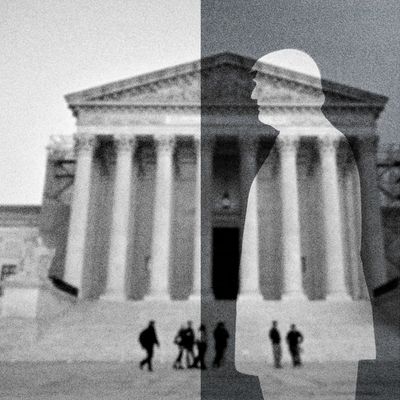
For most of the past year, we’ve wondered, Just how much damage will the four indictments of Donald Trump inflict on him before the 2024 election? After months of war-gaming, we suddenly have newfound clarity. The pre-election fates of three of the Trump cases are now all but settled, and resolution of the fourth will soon give us the single most crucial pivot point of the Trump legal saga and the 2024 election cycle.
Let’s take inventory.
Manhattan District Attorney: Hush Money/2016 Election. The jury has spoken, and the former president is now a convicted felon. Our next order of business: Will Judge Juan Merchan sentence Trump to prison? Sentencing is set for July 11 — just days before the Republican National Convention — and this one feels like a toss-up.
On one hand, the healthy majority of New York defendants convicted of the same crime (falsification of business records in the first degree) receive non-prison sentences. On the other hand, Trump’s case presents obvious aggravating factors: his gag-order violations, his public contempt for the judge and the proceedings, his lack of remorse or acceptance of responsibility. Either way, watch for Trump to make a political meal out of it. If the judge does impose a prison sentence, Trump will remind his supporters that “they” are going to put him in a cage (literally, now). If the judge sentences Trump merely to probation, fines, and other non-incarceratory terms, then he’ll gloat and claim it was all a big nothing.
Meanwhile, the appeals process will play out, slowly. Given the novel charges — this marks the first time in U.S. history that state prosecutors have charged federal-election-law violations as state crimes or predicates — he’s got a better shot than most defendants have on appeal. But, on balance, Trump is unlikely to get his conviction reversed, especially at the New York State level, where 20 of the 21 mid-level appeals judges and all seven judges on the top court were appointed by Democratic governors. (I know it’s not supposed to matter, but of course it does; would we feel the exact same about Trump’s chances if the ideological stats were reversed and 27 of the 28 appeals judges were Republican appointees?) Trump’s appeals won’t be fully resolved by Election Day 2024, and he almost certainly will be permitted to stay out on bail in the meantime. Polling is inconclusive so far on the electoral impact of the conviction, but the soundest conclusion seems to be that it won’t help Trump and it might hurt him a bit. In an election this close, the margins matter.
Fulton County District Attorney: 2020 Election Subversion. This overcharged, overbroad, overhyped showpiece had been circling the drain for months, and now it’s clear: This trial isn’t happening before the election or maybe ever. The Georgia Court of Appeals has begun its review of District Attorney Fani Willis’s potential conflicts of interest and her out-of-court public statements. We don’t know what the appeals court ultimately will do, but we do know (1) it didn’t have to take this case, but it did, and (2) it didn’t have to pause the trial court proceedings, but it did. Neither of those are wonderful signs for the prosecution.

The Third Degree With Elie Honig
Subscribe on:
If Willis is disqualified, her entire office goes with her, and this case languishes in purgatory as it awaits review by an independent prosecutorial board, followed either by dismissal or reassignment to another county. This would be an undeserved windfall for Trump and his co-defendants. But when an enormously powerful elected district attorney gives testimony that (according to the trial judge) raises “reasonable questions” about whether she “testified untruthfully” and makes “legally improper” public statements that could prejudice the defendants, consequences follow.
DOJ Special Counsel: Mar-a-Lago Classified Documents. The fury around Judge Aileen Cannon – calls for her impeachment or removal (a remedy that Jack Smith himself has not sought), fantastical imputations of corruption — is a bit overwrought. But she certainly has not been a paragon of judicial brilliance or efficiency. Nor does Judge Cannon seem to give a darn about trying Trump before the election. Indeed, recent news that the judge has postponed several pending pretrial motions confirms what has been clear all along: This one isn’t happening before the election. Moving along.
DOJ Special Counsel: 2020 Election Subversion. The most important of the four Trump criminal cases also faces the most uncertain immediate future. Someday soon — within the next couple weeks, before the end of the Supreme Court’s term — we’ll learn its fate. The Court will decide, for the first time in American history, whether a president (or any federal official) can enjoy criminal immunity for his official acts. Watch closely, because this will be the pivotal moment of the summer.
Broadly speaking, the Court’s decision could go either of two ways for Trump, leading to vastly divergent legal and political outcomes. Consider the possibilities:
Scenario A. The Supreme Court accepts Trump’s immunity claim on the spot (highly unlikely) or sends the matter back to the trial court for a fact-finding hearing about whether his conduct falls within some newly articulated standard for immunity (not at all unlikely). Those additional proceedings, and the attendant appeals, blow out the rest of the remaining calendar between now and November, and the trial happens after the 2024 election (or, if Trump wins, in 2029).
Scenario B. The Supreme Court outright rejects Trump’s immunity claim — perhaps by refusing to recognize criminal immunity at all or by creating some form of immunity test but finding that Trump falls outside those parameters. The case would then go back to the district court, where both Jack Smith and Judge Tanya Chutkan are hell-bent on trying Trump before the election. The judge would likely set a trial date in August or September, carrying through mid- to late October. In this scenario, Trump would be pulled off the campaign trail and relegated to the defendant’s table inside a D.C. courtroom for virtually the entire 2024 election stretch run. And a verdict — likely guilty, given the evidence and the venue — could drop just before Election Day.
Indeed, the differences are that stark: Either the case gets the boot and is mostly forgotten until after the election or it lands smack-dab in the middle of the campaign homestretch and culminates days before Americans cast their votes. There’s no middle ground.
Over just the past few weeks, we’ve gone from a morass of four unknowns to three mostly knowns and one still unknown with monster consequences. More than any other outstanding contingency — Trump’s vice-presidential selection, the candidates’ debate performances, trends in inflation — the Supreme Court’s ruling on immunity will define, and perhaps determine, the 2024 election. Trump’s criminal fate, and his political fortunes, hang in the balance.
This article originally appeared in the free CAFE Brief newsletter. You can find more analysis of law and politics from Elie Honig, Preet Bharara, Joyce Vance, and other CAFE contributors at CAFE.com






























